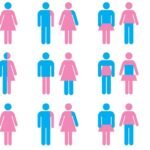How Masculinity Shapes Identity
Masculinity profoundly influences how individuals shape their identities, affecting personal development, societal expectations, and interpersonal relationships. Understanding how masculinity shapes identity helps reveal the complexities of gender roles and their impact on self-perception and social interactions. This article delves into the various ways masculinity influences identity and examines the implications of these dynamics.

Defining Masculinity
To understand how masculinity shapes identity, it is crucial to first define what masculinity encompasses. Traditionally, masculinity is associated with traits such as strength, assertiveness, and independence. These attributes are often celebrated and expected in men, creating a framework for how they should present themselves and interact with others. However, it is important to recognize that masculinity is not a monolithic concept; it varies across cultures and individuals, reflecting diverse experiences and expressions of male identity.
Social Expectations and Gender Norms
One significant way masculinity shapes identity is through social expectations and gender norms. Society often imposes specific behaviors and characteristics deemed appropriate for men, such as emotional stoicism, physical toughness, and dominance. These norms influence how men view themselves and their roles in both personal and professional contexts. For instance, men may feel pressured to conform to these expectations, which can impact their self-esteem and mental health. Consequently, understanding these social pressures helps reveal how masculinity shapes identity by dictating acceptable behaviors and self-perceptions.
Personal Development and Self-Perception
Masculinity also shapes identity through personal development and self-perception. From a young age, boys are often encouraged to embody traditional masculine traits, which can influence their interests, career choices, and relationship dynamics. This conditioning impacts how men view their own identities and their potential. For example, societal pressure to pursue high-status careers or exhibit emotional restraint can limit personal growth and self-expression. Recognizing these influences helps highlight the role of masculinity in shaping how individuals develop their identities and navigate life’s challenges.
Interpersonal Relationships
Masculinity shapes identity not only at an individual level but also within interpersonal relationships. Traditional masculine norms can affect how men interact with family, friends, and romantic partners. For instance, men might struggle with expressing vulnerability or seeking support due to societal expectations of emotional resilience. This can impact relationship dynamics, leading to challenges in communication and emotional intimacy. Understanding how masculinity shapes identity in relationships helps address these issues and promotes healthier, more open interactions.
Impact on Mental Health
The influence of masculinity on identity can also have significant implications for mental health. Adhering to rigid masculine norms can contribute to stress, anxiety, and depression, particularly when individuals feel unable to meet societal expectations. Men may experience internal conflict between their authentic selves and the masculine ideals imposed upon them. This disconnect can hinder emotional well-being and lead to mental health struggles. Addressing how masculinity shapes identity is crucial for fostering a supportive environment where men can express themselves authentically and seek help when needed.
Challenging Traditional Masculine Norms
Challenging traditional masculine norms is essential for evolving how masculinity shapes identity. By promoting alternative expressions of masculinity that embrace emotional vulnerability, empathy, and collaboration, we can create more inclusive and diverse understandings of what it means to be a man. Efforts to deconstruct and redefine masculine norms can help alleviate the pressures that restrict personal growth and improve interpersonal relationships. Encouraging men to explore and embrace a broader range of identities contributes to a healthier and more equitable society.
Embracing Diverse Masculinities
Embracing diverse masculinities is another important aspect of understanding how masculinity shapes identity. Recognizing that there is no single way to be masculine allows individuals to express their identities more freely and authentically. By celebrating different expressions of masculinity, we can challenge stereotypes and create space for men to define their identities on their own terms. This inclusivity fosters a more nuanced and supportive environment, where all forms of masculinity are valued and respected.
Conclusion
In conclusion, masculinity plays a significant role in shaping identity through social expectations, personal development, interpersonal relationships, and mental health. By understanding how masculinity shapes identity, we can address the challenges and limitations imposed by traditional gender norms and work towards a more inclusive and supportive society. Challenging rigid masculine ideals and embracing diverse expressions of masculinity can lead to healthier self-perceptions and more meaningful connections with others. Ultimately, acknowledging and addressing the complexities of masculinity is essential for fostering a more equitable and understanding world.



